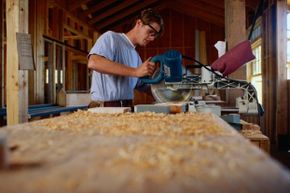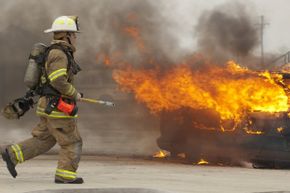The aching, the pressure, the congestion — sinus trouble is a serious pain. The good news is that most of us only have to deal with it when our allergies flare up and during the height of cold and flu season. But for an unlucky few, going to work can actually be at the heart of ongoing sinus troubles.
Your sinuses are a series of interconnected spaces behind the bones surrounding your eyes and nose. The scientific jury is still out on exactly how important our sinuses are and what they do for us, but we do know that they're lined with moist, protective mucus. Sinus troubles usually start when one or more of the passages between the sinus cavities becomes blocked. This blockage is usually caused by inflammation of the sinus lining due to a host of causes, including viruses, bacteria, allergies and pollutants. When sinuses are blocked, the backed-up mucus causes headaches, facial pain and general yuckiness [source: Nelson].
Advertisement
A seasonal sinus back-up is bad enough, but imagine if your job also had the potential to stop up your sinuses. Keep reading for five occupations that are particularly prone to sinus problems.




